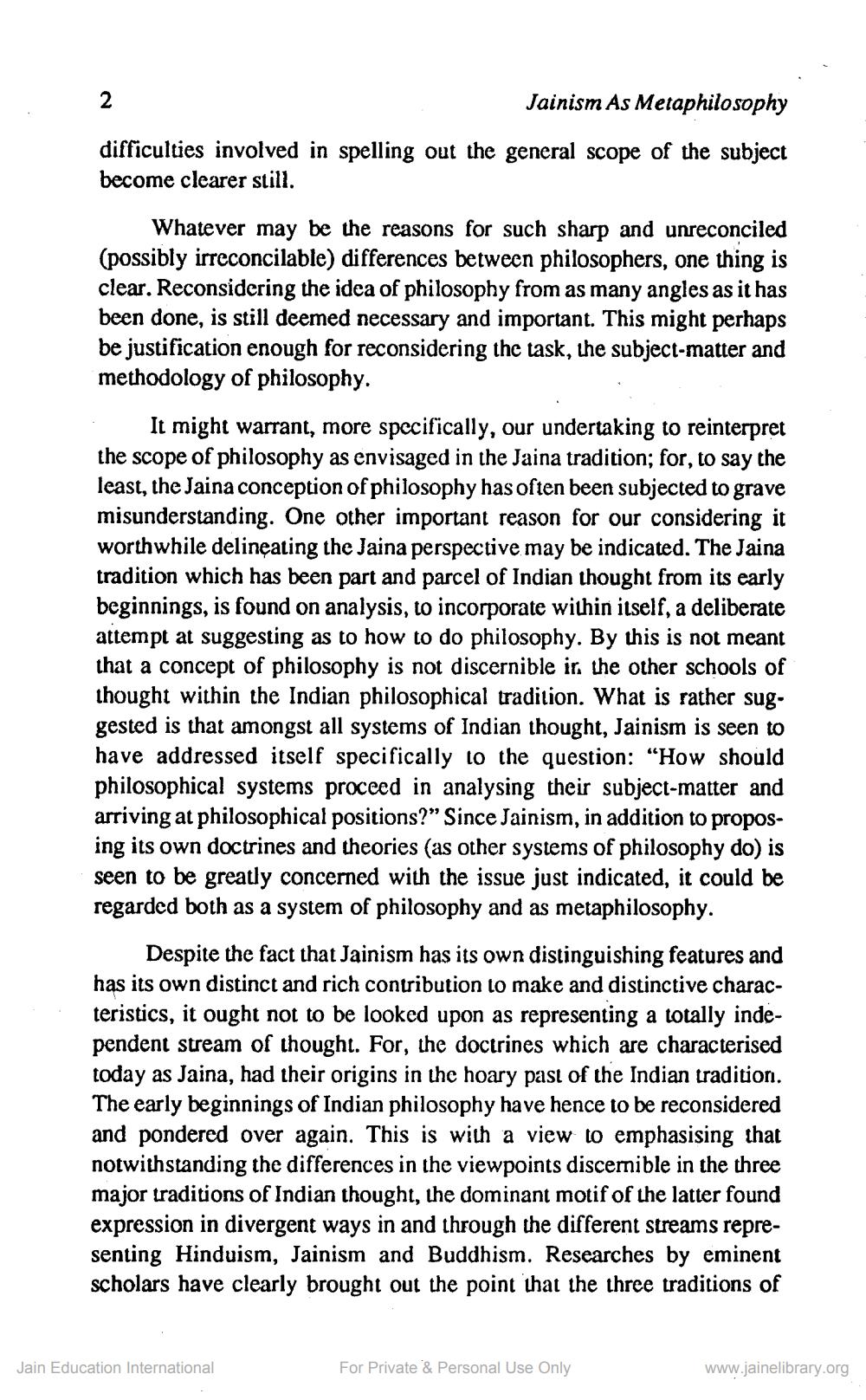________________
Jainism As Metaphilosophy
difficulties involved in spelling out the general scope of the subject become clearer still.
2
Whatever may be the reasons for such sharp and unreconciled (possibly irreconcilable) differences between philosophers, one thing is clear. Reconsidering the idea of philosophy from as many angles as it has been done, is still deemed necessary and important. This might perhaps be justification enough for reconsidering the task, the subject-matter and methodology of philosophy.
It might warrant, more specifically, our undertaking to reinterpret the scope of philosophy as envisaged in the Jaina tradition; for, to say the least, the Jaina conception of philosophy has often been subjected to grave misunderstanding. One other important reason for our considering it worthwhile delineating the Jaina perspective may be indicated. The Jaina tradition which has been part and parcel of Indian thought from its early beginnings, is found on analysis, to incorporate within itself, a deliberate attempt at suggesting as to how to do philosophy. By this is not meant that a concept of philosophy is not discernible in the other schools of thought within the Indian philosophical tradition. What is rather suggested is that amongst all systems of Indian thought, Jainism is seen to have addressed itself specifically to the question: "How should philosophical systems proceed in analysing their subject-matter and arriving at philosophical positions?" Since Jainism, in addition to proposing its own doctrines and theories (as other systems of philosophy do) is seen to be greatly concerned with the issue just indicated, it could be regarded both as a system of philosophy and as metaphilosophy.
Despite the fact that Jainism has its own distinguishing features and has its own distinct and rich contribution to make and distinctive characteristics, it ought not to be looked upon as representing a totally independent stream of thought. For, the doctrines which are characterised today as Jaina, had their origins in the hoary past of the Indian tradition. The early beginnings of Indian philosophy have hence to be reconsidered and pondered over again. This is with a view to emphasising that notwithstanding the differences in the viewpoints discernible in the three major traditions of Indian thought, the dominant motif of the latter found expression in divergent ways in and through the different streams representing Hinduism, Jainism and Buddhism. Researches by eminent scholars have clearly brought out the point that the three traditions of
Jain Education International
For Private & Personal Use Only
www.jainelibrary.org




